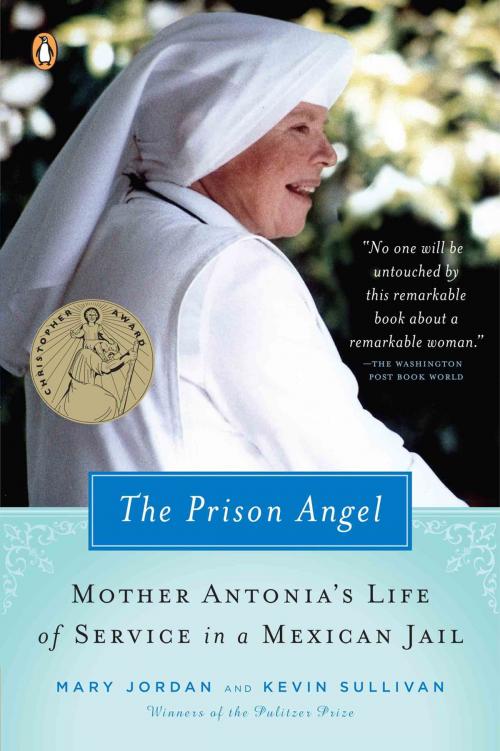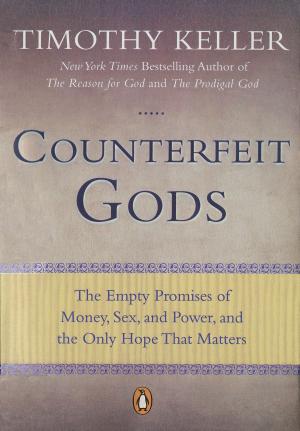The Prison Angel
Mother Antonia's Journey from Beverly Hills to a Life of Service in a Mexican Jail
Nonfiction, Religion & Spirituality, Christianity, Missions & Missionary Work, Social & Cultural Studies, Social Science, Crimes & Criminals, Penology, Biography & Memoir, Religious| Author: | Mary Jordan, Kevin Sullivan | ISBN: | 9781101098714 |
| Publisher: | Penguin Publishing Group | Publication: | May 30, 2006 |
| Imprint: | Penguin Books | Language: | English |
| Author: | Mary Jordan, Kevin Sullivan |
| ISBN: | 9781101098714 |
| Publisher: | Penguin Publishing Group |
| Publication: | May 30, 2006 |
| Imprint: | Penguin Books |
| Language: | English |
The winners of the 2003 Pulitzer Prize for international reporting tell the astonishing story of Mary Clarke. At the age of fifty, Clarke left her comfortable life in suburban Los Angeles to follow a spiritual calling to care for the prisoners in one of Mexico's most notorious jails. She actually moved into a cell to live among drug king pins and petty thieves. She has led many of them through profound spiritual transformations in which they turned away from their lives of crime, and has deeply touched the lives of all who have witnessed the depth of her compassion. Donning a nun's habit, she became Mother Antonia, renowned as "the prison angel," and has now organized a new community of sisters-the Servants of the Eleventh Hour—widows and divorced women seeking new meaning in their lives. "We had never heard a story like hers," Jordan and Sullivan write, "a story of such powerful goodness."
Born in Beverly Hills, Clarke was raised around the glamour of Hollywood and looked like a star herself, a beautiful blonde reminiscent of Grace Kelly. The choreographer Busby Berkeley spotted her at a restaurant and offered her a job, but Mary's dream was to be a happy wife and mother. She raised seven children, but her two unfulfilling marriages ended in divorce. Then in the late 1960s, in midlife, she began devoting herself to charity work, realizing she had an extraordinary talent for drumming up donations for the sick and poor.
On one charity mission across the Mexican border to the drug-trafficking capitol of Tijuana, she visited La Mesa prison and experienced an intense feeling that she had found her true life's work. As she recalls, "I felt like I had come home." Receiving the blessings of the Catholic Church for her mission, on March 19, 1977, at the age of fifty, she moved into a cell in La Mesa, sleeping on a bunk with female prisoners above and below her. Nearly twenty-eight years later she is still living in that cell, and the remarkable power of her spiritual counseling to the prisoners has become legendary.
The story of both one woman's profound journey of discovery and growth and of the deep spiritual awakenings she has called forth in so many lost souls, The Prison Angel is an astonishing testament to the powers of personal transformation.
The winners of the 2003 Pulitzer Prize for international reporting tell the astonishing story of Mary Clarke. At the age of fifty, Clarke left her comfortable life in suburban Los Angeles to follow a spiritual calling to care for the prisoners in one of Mexico's most notorious jails. She actually moved into a cell to live among drug king pins and petty thieves. She has led many of them through profound spiritual transformations in which they turned away from their lives of crime, and has deeply touched the lives of all who have witnessed the depth of her compassion. Donning a nun's habit, she became Mother Antonia, renowned as "the prison angel," and has now organized a new community of sisters-the Servants of the Eleventh Hour—widows and divorced women seeking new meaning in their lives. "We had never heard a story like hers," Jordan and Sullivan write, "a story of such powerful goodness."
Born in Beverly Hills, Clarke was raised around the glamour of Hollywood and looked like a star herself, a beautiful blonde reminiscent of Grace Kelly. The choreographer Busby Berkeley spotted her at a restaurant and offered her a job, but Mary's dream was to be a happy wife and mother. She raised seven children, but her two unfulfilling marriages ended in divorce. Then in the late 1960s, in midlife, she began devoting herself to charity work, realizing she had an extraordinary talent for drumming up donations for the sick and poor.
On one charity mission across the Mexican border to the drug-trafficking capitol of Tijuana, she visited La Mesa prison and experienced an intense feeling that she had found her true life's work. As she recalls, "I felt like I had come home." Receiving the blessings of the Catholic Church for her mission, on March 19, 1977, at the age of fifty, she moved into a cell in La Mesa, sleeping on a bunk with female prisoners above and below her. Nearly twenty-eight years later she is still living in that cell, and the remarkable power of her spiritual counseling to the prisoners has become legendary.
The story of both one woman's profound journey of discovery and growth and of the deep spiritual awakenings she has called forth in so many lost souls, The Prison Angel is an astonishing testament to the powers of personal transformation.















